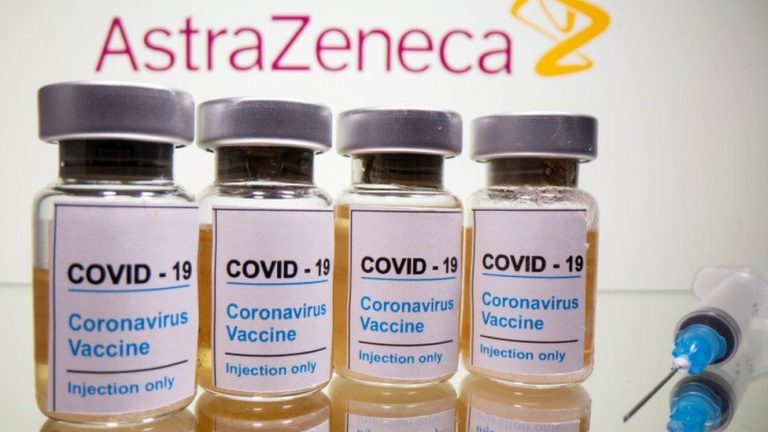
The African Union (AU) said it has halted plans to secure Oxford/AstraZeneca coronavirus vaccines because of supply concerns from India’s Serum Institute.
This comes at the heels of AstraZeneca vaccine blood clot concerns and vaccine shortage that has kept African countries at the bottom of global vaccination effort.
The Financial Times reported John Nkengasong, the Africa Centres for Disease Control and Prevention unit’s director, saying that the body will instead focus on the single-shot vaccine from Johnson & Johnson.
Tekedia Mini-MBA edition 16 (Feb 10 – May 3, 2025) opens registrations; register today for early bird discounts.
Tekedia AI in Business Masterclass opens registrations here.
Join Tekedia Capital Syndicate and invest in Africa’s finest startups here.
According to him, the decision not to buy AstraZeneca is so as “not to duplicate efforts.” African countries will still receive the AstraZeneca jab through the World Health Organization’s global vaccine-sharing facility Covax.
“We didn’t want to compete with Covax,” he told the Financial Times. “[AstraZeneca] vaccines from the Serum Institute of India are coming to the continent, anyway.” Nkengasong stressed that the decision had “nothing to do” with concerns in Europe about blood clots, insisting that “we recommend the use of the [AstraZeneca] vaccine”.
While there are reasons to believe that AU’s decision has nothing to do AstraZeneca’s blood clot concerns, the timing has the capacity to trigger a new wave of vaccine apathy in Africa.
“The announcement happening around the same time the European medical authority shared concerns over blood clots gives people more reason to amplify misinformation,” said Gregory Rockson, founder of Africa-wide healthcare provider mPharma, which is based in Ghana.
“We need strong political leadership and clear messaging to fight growing vaccine scepticism,” he added.
On Wednesday, UK and European regulators ruling found a link between the jab and very rare blood clots, justifying the decision of many countries to suspend its use. Spain and Italy have moved to limit the use of the AstraZeneca vaccine to people aged above 60, and the UK to those aged over 30.
Before the ruling on Wednesday, calls for Africa to join other countries to suspend AstraZeneca vaccine had been on high.
South Africa was selling the AstraZeneca vaccine to other AU member states following concern it would be less effective in fighting the local variant.
But amidst the jab’s efficacy concern is also the challenge of production and distribution.
Nkengasong said delays in deliveries of AstraZeneca doses were hampering vaccination drives across Africa, and the ability to forecast when doses will be available is vital when planning those efforts.
“This latest decision was just a clear understanding of how not to duplicate efforts with the Serum Institute, so that we complement each other rather than duplicate efforts,” he said during a press briefing.
Since it was agreed “Covax would get those [AstraZeneca] doses and start with the vaccination programme, we now shifted our efforts to the Johnson & Johnson arrangement and that is what led to the agreement of last week, so that the Serum Institute of India was enabled to be able to supply doses to the Covax mechanism”, he added.
Last week, J&J announced an agreement to supply the AU with up to 400m doses of the jab by the third quarter of the year.

But there is also concern that uncertainties emanating from new waves and new variants of the virus. may get in the way of J&J.
In January, Nkengasong said the Africa CDC was planning to receive another 400m shots of AstraZeneca from the Serum Institute, in addition to 270m previously discussed. These vaccines have not arrived.
Last month India, one of the world’s biggest vaccine producers, froze all major exports of jabs to prioritize local vaccinations as its second wave of coronavirus infections accelerated.
Apart from the fear that this development will fuel misinformation, Africa’s narrowed vaccine choices may be jeopardized.
Ayoade Alakija, co-chair of the AU’s Africa Vaccine Delivery Alliance for Covid-19, said he is concerned that people may end up missing second doses and it will be a “catastrophic failure of vaccine efforts if we have to restart the clock.”
The WHO has said the aim of Covax is to vaccinate at least 20 per cent of Africans with 600m doses of the AstraZeneca jab by the end of the year.
With the first quarter of the year gone, more than 700 million vaccine doses have been administered globally, yet Africa accounts for less than 2% of the total compared to North America’s 27% and Europe’s 20% share, according to the latest data.
“Our goal is to get to 60 per cent. If Covax gets to 20 per cent, then we can go and find additional doses to get to 60. If Covax goes to AstraZeneca to get those doses, we can then go to Johnson & Johnson to find the remaining vaccines,” Nkengasong said.
There is no guarantee that Africa’s vaccine target will be met as it is increasingly getting altered by unforeseen events and decisions such as this by the AU.



